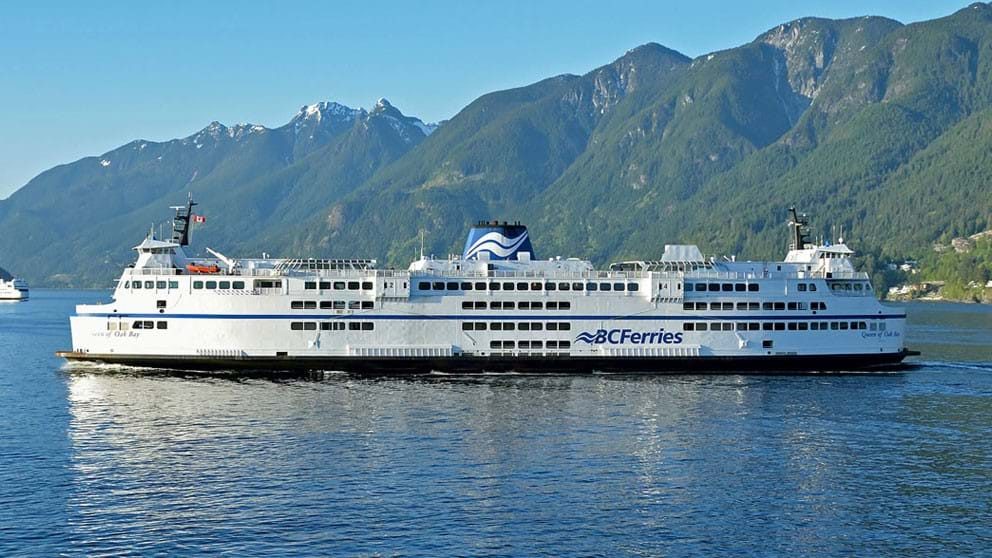
Two alternative fuel trials conducted by BC Ferries eliminate 13,000 metric tons of GHG
After completing alternative fuel tests on two of its vessels, BC Ferries is moving closer to its 2030 target of reducing the company’s 2008 level of greenhouse gas (GHG) emissions by at least 27%. The company’s greenhouse gas emissions are 5% below the 2008 baseline in 2022.
BC Ferries is primarily focused on the fuels combustion by its vessels to reduce GHG as this accounts for 98% of emissions. The company operates a fleet including electric and LNG-powered ferries with its six hybrid battery-electric Island Class ferries, two LNG Spirit Class ships, and four LNG Salish Class vessels.
Last year, the ferry operator ran two trials with alternative fuels on the Queen of Oak Bay and the Queen of Surrey, respectively. In October 2021, the 41-year-old Queen of Oak Bay started its transition, running with 20% biodiesel (B20) instead of the typical ultra-low sulfur diesel containing at least 5% biodiesel (B5).
Renewable diesel was also tried on the Queen of Surrey. Originating from a feedstock similar to biodiesel but undergoing a different process, renewable diesel is economically beneficial and can reduce GHG emissions by up to 75%.
From October 2021 through June 2022, the two trials prevented GHG emissions equivalent to removing 3000 cars from the road for a year.
Over the next year, BC Ferries will use B20 on all of its Metro Vancouver-based vessels that currently use conventional diesel and will evaluate the opportunity to go to 100% biodiesel (B100).